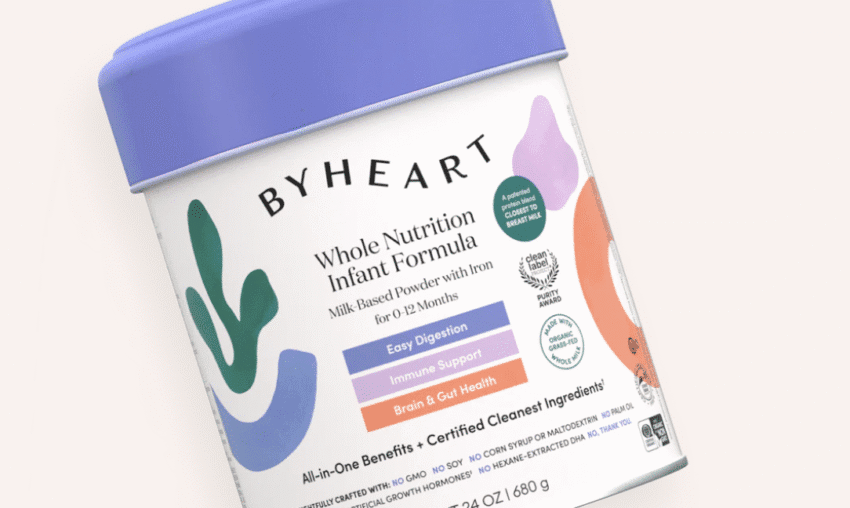
from defiant to contrite formula maker confirms ByHeart has confirmed the presence of the bacterium responsible for botulism in its baby formula, a revelation that coincides with a significant increase in reported cases of infant botulism across the United States.
from defiant to contrite formula maker confirms
Background of the Outbreak
The infant botulism outbreak was first announced on November 8, 2025, and has since escalated dramatically. As of November 19, the Centers for Disease Control and Prevention (CDC) reported 31 confirmed cases across 15 states, a notable rise from the 15 cases in 12 states that were reported just a week earlier. All affected infants have required hospitalization, although no fatalities have been documented to date.
Botulism is a rare but serious illness caused by the bacterium Clostridium botulinum, which produces a potent toxin that can lead to paralysis and respiratory failure. Infants are particularly vulnerable to this condition, as their digestive systems are not yet fully developed to handle the spores of the bacteria. Symptoms of infant botulism can include constipation, weakness, poor feeding, and a distinctive “floppy” appearance due to muscle weakness.
ByHeart’s Response
In a statement released on Thursday, ByHeart acknowledged that its internal testing had confirmed the presence of the botulism-causing bacterium in its baby formula. This admission marks a significant shift in the company’s stance, which had previously been characterized by a defensive posture regarding the outbreak. Initially, ByHeart was reluctant to accept any responsibility for the illnesses linked to its products, even as health officials began to investigate the potential connection.
Initial Denial and Subsequent Admission
ByHeart’s initial response to the outbreak was marked by an unusual level of defiance. The company publicly stated that it did not believe its formula was responsible for the illnesses, despite the growing number of cases. This approach drew criticism from health experts and parents alike, who were concerned about the safety of the product and the well-being of their children.
However, as evidence mounted and the number of reported cases continued to rise, ByHeart’s position began to shift. The company has since expressed contrition, acknowledging the seriousness of the situation and the need for transparency. This change in tone reflects not only the gravity of the outbreak but also the mounting pressure from health authorities and the public for accountability.
Health Implications
The implications of this outbreak are far-reaching, particularly for parents who rely on baby formula as a primary source of nutrition for their infants. The presence of Clostridium botulinum in baby formula raises significant health concerns, as even a small amount of the toxin can be life-threatening for young children. Parents are understandably anxious about the safety of their infants, and the situation has sparked widespread discussions about formula safety regulations and quality control measures.
Regulatory Oversight
The Food and Drug Administration (FDA) plays a critical role in regulating infant formula production and safety standards. In light of the current outbreak, there may be increased scrutiny of manufacturing practices within the industry. The FDA has been known to conduct inspections and enforce regulations to ensure that formula products are safe for consumption. However, the efficacy of these measures may come into question as more details about the outbreak emerge.
In addition to regulatory implications, the outbreak may prompt a reevaluation of existing safety protocols within formula manufacturing plants. Companies may be compelled to adopt more stringent testing procedures and quality assurance measures to prevent similar incidents in the future. This could lead to increased costs for manufacturers, which may ultimately be passed on to consumers.
Stakeholder Reactions
The reactions from various stakeholders, including parents, health officials, and industry experts, have been swift and varied. Many parents have expressed outrage and concern over the safety of baby formula, a product they trust to nourish their infants. Social media platforms have become a space for parents to share their experiences and seek information about the safety of ByHeart’s products and others on the market.
Parents’ Concerns
Parents are rightfully worried about the potential risks associated with using baby formula during this outbreak. The emotional toll of having a sick infant can be overwhelming, and the uncertainty surrounding the safety of formula products only exacerbates these fears. Many parents are now questioning their choices and considering alternatives, such as breastfeeding or homemade formulas, despite the challenges these options may present.
Health Officials’ Perspectives
Health officials have emphasized the importance of vigilance and awareness during this outbreak. They have urged parents to monitor their infants for any signs of illness and to seek medical attention if they notice any concerning symptoms. Additionally, health authorities have been working to disseminate information about the outbreak and its potential risks to the public, aiming to keep parents informed and prepared.
Future Implications for ByHeart
As ByHeart navigates the fallout from this outbreak, the company faces significant challenges ahead. The shift from a defiant to a contrite stance may help to rebuild some trust with consumers, but the damage to its reputation may take longer to repair. Transparency and accountability will be crucial for the company as it works to regain the confidence of parents and health officials alike.
Potential Legal Ramifications
In addition to reputational damage, ByHeart may also face legal ramifications as a result of the outbreak. Parents of affected infants may pursue legal action against the company, seeking compensation for medical expenses and emotional distress. Such lawsuits could further strain ByHeart’s resources and complicate its recovery efforts.
Long-Term Changes in the Industry
This incident may also serve as a catalyst for broader changes within the baby formula industry. Increased public scrutiny and regulatory oversight could lead to more stringent safety standards and testing requirements. Companies may need to invest in better quality control measures and transparency initiatives to reassure consumers about the safety of their products.
Conclusion
The confirmation of Clostridium botulinum in ByHeart’s baby formula amid a rising outbreak of infant botulism has raised serious concerns about the safety of infant nutrition products. As the situation continues to evolve, the focus will remain on ensuring the health and safety of vulnerable infants. ByHeart’s transition from defiance to contrition highlights the importance of accountability in the food industry, particularly when it comes to products designed for the youngest and most vulnerable consumers.
Source: Original report
Was this helpful?
Last Modified: November 21, 2025 at 4:36 am
1 views















